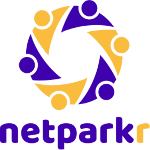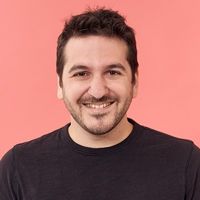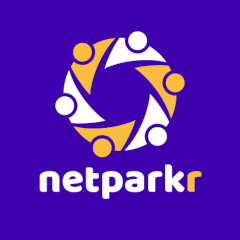Juan Salas, a 37-year-old developer from Argentina, created Celerative as a way to advance himself. His remote workforce solution now has over 25 paying clients, close to 5,000 registered users, and over 100 active contractors, and brings in $350,000 each month. He also loves to sail and bought his own yacht this year.
Some people use online learning to improve themselves. Others start a fresh fitness routine. The 37-year-old founder of Celerative, Juan Salas, created his remote workforce solution as a way to advance himself. His tiny passion project changed thousands of people’s lives and professions in addition to his own.
Juan’s side project currently has over 25 paying clients, close to 5,000 registered users, and over 100 active contractors. Additionally, they bring in $350,000 each month.
This is the account of how a developer from Argentina’s love of learning resulted in the founding of a prosperous bootstrapped company and the establishment of his Californian dream life.
A Person Who Lets Knowledge Lead Him
Juan Salas loves to sail. He loves the sport so much that he purchased a home there.
“I grew up around boats,” Juan says. I basically lived on a boat during the summers when my family went to Uruguay, and in America I learned how to sail properly.
Juan doesn’t, however, sail for the sake of exercise. I just bought my own yacht this year. He continues, “I purposely bought a fixer-upper so I could work on the woodwork, engine, and rigging. Because there is so much to learn, I almost prefer it to sailing.
This sheds some light on Juan’s personality. One of the most crucial components of a successful engineer’s life is learning and self-improvement. His career has spanned academics in Germany, the US tech industry, and Argentina’s growing technology landscape. He was once a researcher at a German university. mostly because he likes to learn new things and try new things.
“We always view Celerative as a means for every employee to achieve their individual objectives,” he claims.
Balanced Passion and Profitability
Juan has experimented in a variety of businesses since he is so passionate about learning. After high school, he attended college in Germany where, for two years, he worked as a research assistant looking into semantic web technologies for internet 3.0. But then he went away.
Although the study was fascinating, Juan observes that it was incredibly bureaucratic. “I didn’t always carry out the investigations I wanted to. I left because I had started doing freelance work on the side and wanted to develop it.
Juan left his job in Germany and went back to his home country of Argentina. He worked on a number of projects there, including his first business, Incodex, which produced software for advertising companies. Additionally, he held the position of CTO at an incubator in La Plata, Argentina.
Juan often went to meetings at the La Plata IT industry chamber, where he first met Pablo Baldoma, his future business partner. They quickly grew close, combined their businesses, and became fast friends. Juan’s software engineering abilities and his friend’s UX knowledge were combined to establish Celerative in 2015.
Since that tragic encounter, Celerative has gone by several names. The partners first turned Juan’s software consultancy business into a biometric research center. Eye tracking, electroencephalography, and galvanic skin reaction are examples of biometric feedback data that we would employ for user assessment. We pooled our resources, says Juan.
Their company’s reliance on sending test subjects to laboratories made it challenging for them to grow. They moved to the US and started exporting staff in the VR and gaming sectors, but they still felt they weren’t doing enough.
The team changed their business approach and exclusively worked remotely in 2017 and 2018. They understood that they were ideally situated to fill a $500 billion gap in the software engineering sector.
Where Modern Celerative Began
Juan, an engineer from Argentina who had lived overseas, saw that there was a substantial need for foreign software engineers in American businesses.
We were aware of the outstanding potential in Latin America and Eastern Europe.Companies will go to tremendous efforts to secure this talent, but they may not want to incorporate in these other countries in order to pay their employees less, according to him.
BPO, or business process outsourcing, has long been a common industrial practice, but formal hiring procedures abroad typically call for a physical presence to ease tax and payment compliance. Often, the price is so expensive that only governments and enterprises can afford it. Juan and his colleagues came to the realization that they have the network necessary to start offering talented remote developers from Latin America and beyond to smaller enterprises. They quickly updated their platform to the new style.
Juan responds to a question about his business by saying, “Celerative is similar to a plug-and-play solution for CTOs who want to start a new team or add people with specific skill sets.”
“Startups and smaller companies that want to move quickly must either use an expensive recruiting service or hire new talent in-house,” says Juan. You will be constrained by the local talent pool since you will be paying very high wages. Due to the difficulty of recruiting, you are unsure if you will find the required talent in a fair amount of time.
All contractors must pass Celerative’s internal accreditation process in order to bypass the screening step. Once activated, the platform gives businesses the ability to manage contracts and pay contractors. Celerative doesn’t just work with foreign contractors. It also has resources for monitoring and paying contracts with regional contractors.
“What we now have is a platform that allows customers to communicate with international contractors. They are able to handle contracts and payments. They may also purchase a subscription to use our payroll and management features for their own contractors, according to Juan.
After launch, they quickly attained product-market fit and started making a steady profit.
Be Sparse Only When Necessary Celerative’s early self-funding was not a purposeful decision to forgo venture cash, but rather a result of need. This, according to Juan, is partly a result of their ancestry.
“In 2015, we were a small business, and finding venture funding in Argentina was challenging. Things are getting better now, he claims.
Despite the inconvenience, he believes that the challenges he had while starting his company in Argentina contributed to some of its present success.
Because of Argentina’s tiny size and unpredictability, he argues, “you must be resourceful.” You can never specialize enough. The currency may lose 20% of its value in a week, there is severe inflation, and there are strict employment rules. This gave us the ability to be resourceful and resilient. We were able to refocus our energy on the business after we got to America.
Juan thinks that the firm was in some respects held back by a lack of venture funding, but he is happy with the way things are now.
“Without VC guidance, we learned a great deal from feedback and by doing,” the author adds. “Eventually, we got the chance to seek finance, but we already had a successful company with a good cash flow. We made the decision to keep running our company since it gives us so much freedom to experiment and learn new things.
He continues, “If we took venture financing, we would be pursuing their goals, not our own.
Juan’s story is noteworthy not just for his capacity for financial gain but also for his other accomplishments. Entrepreneurs who let their businesses take over their entire lives and energy are something we frequently read about. There are countless untold tales like Juan’s that show that not only is it possible to produce work that has a positive impact on the world, but also that doing so opens up opportunities for the life you want to lead.
For further information
You can check our site
We gather unique business case studies from all over the internet, to inspire you with a wide range of business ideas. This case study was supervised by our team and it definitely caught our interest. You can find other inspiring business stories here.







